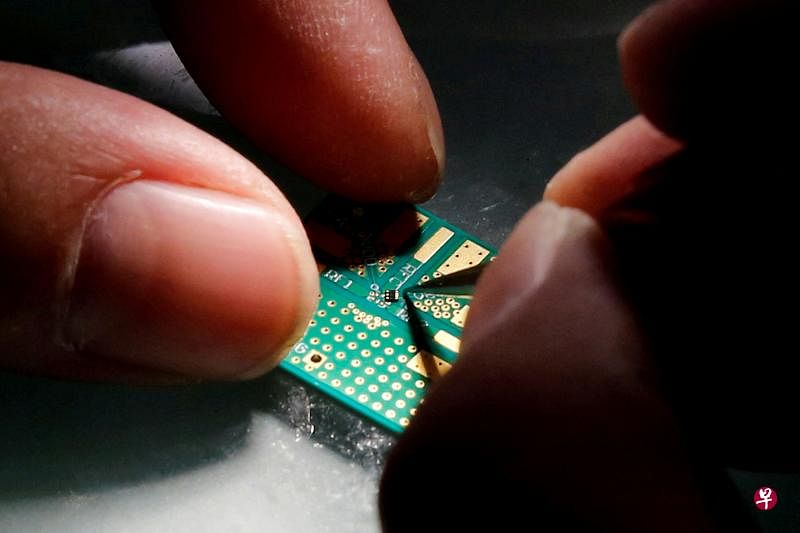
February 2, 2023
The United States has successfully attracted Japan and the Netherlands to jointly block the future development potential of the Chinese high -end chip industry. In addition to reflecting the continuous upgrading of the fierceness of the US -China game, it also implies the pessimistic future of economic globalization.The chip industry is a classic product of economic globalization. It relies on the meticulous division of labor in the industry chain in many countries in the world, forming a highly complex ecosystem.Excluding China, one of the world's factories and one of the main markets, is bound to combat the overall efficiency of the chip industry, thereby hurting all stakeholders.The world economy will pay for it, and the quality of consumer life of peoples in various countries must also be harmed.
Under the pressure of Japan and the Netherlands, under the pressure of the United States, they agreed to join the camp for the Chinese chip industry to have a very serious blow to the Chinese chip industry and the subsequent economic development potential.Although the three countries' agreements are not officially public in the world, the content of the content is based on the chip law that the United States took effect last October.From all parties to the media to observe one after another, whether from raw materials, precision machinery, production technology to talent support, the Chinese chip industry will become more and more decoupled with the world's mainstream in the future, and the gap with foreign technology will inevitably grow.In the future, China can only purchase high -end chips from the international market, and high -tech military development will be frustrated accordingly.
This has not only set up technical ceiling for the Chinese chip industry, but also expands to restrictions on commercial production currently based on existing craftsmanship.For example, the Netherlands not only suspended the light carvings of China, but also ended after -sales parts and maintenance.This explains why Chinese Foreign Minister Qin Gang called on January 30 with the Dutch Deputy Prime Minister and Minister of Foreign Affairs, Hutra, on January 30, calling on "jointly maintaining the international industrial chain supply chain stable".The situation is severe.At the same time, the United States has made a hundred pounds, and it is rumored that it is formulating a disconnection policy for China Communication Technology Giants Huawei, covering existing 4G equipment, WIFI6 and WiFi7, artificial intelligence, high -performance operations and cloud projects.
Zhang Zhongmou, the founder of TSMC Zhang Zhongmou, asserted that "globalization is almost dead" at the construction ceremony of the US factory at the end of last year. It can be described as a specific language from the chip industry.TSMC set up a factory in the United States in the strong pressure of the United States. To this end, it even had to transfer considerable part of engineering talents from Taiwan.TSMC represents Taiwan in the global chip industry chain, and has a place to take advantage of the optimization efficiency of excellence.But leaving the cooperation of other countries, Taiwan could not produce chips separately.The complexity of chip production is only possible to rely on globalization, because no country has mastered all technologies and materials in this special ecosystem.
Therefore, excluding China outside can only be a "kill one thousand, self -damage to 800".Of course, from the perspective of economic benefits, it is indeed the case. Unfortunately, the game of the current great country has subverted the existing value, and the national security considerations of economic production have surpassed the efficiency consideration today.Although the chip industry in China has also harmed the interests of the United States, Japan and Dutch manufacturers and global consumers, the calculation of "China will be more miserable" overwhelmed everything, especially its blow to the Chinese military industry.In the context of Western public opinion speculation in Taiwan Straits, the legitimacy of Chinese military development through chip sanctions is difficult to refute.
In addition to economic and production efficiency, another large price of China is to drag knowledge and scientific research results shared globally.After decades of experience in the Cold War, it shows that in addition to bringing efficient wealth creative capabilities, globalization has also accelerated the development of scientific and technological due to the close communication of the intellectual community of various countries, and built a virtuous circle to promote economic progress.Decodion with China not only cuts huge markets, but also refuses many excellent Chinese scientific research talents outside the door.However, with the loss of mutual trust in China and foreign countries, competition and even the awareness of opposition are strengthened, it is difficult to restore previous exchanges and cooperation.
Although the globalization is almost dead, after all, it has not yet reached the situation of despair.The case of the chip industry proves that the globalization is two advantages, and the essence of the fight is hurt.The US trick may have a sword to block China's military development, but the consumer markets of various countries are also suffering from pond fish.It is not easy to cut them cleanly when scientific and technological military and civilians are more and more common.This also reverses the necessity of economic globalization, because sacrificing production efficiency means a regression of quality of life.Therefore, countries must strive to repair and promote the division of labor in the global industrial chain.


